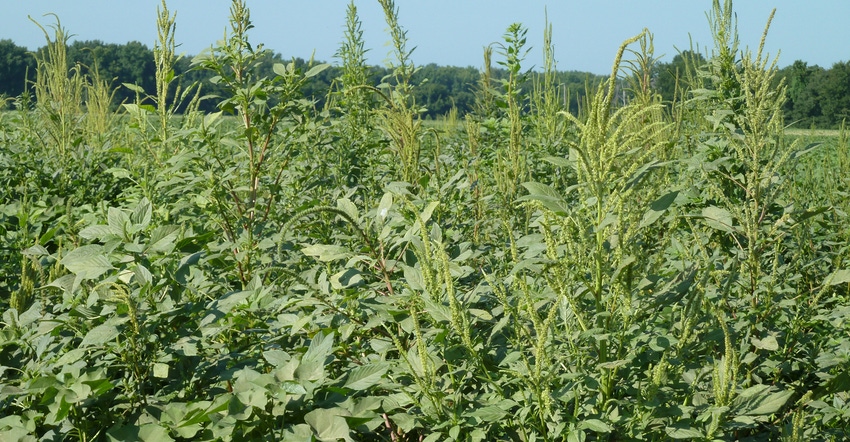March 30, 2020

Weed resistance is a long-term challenge for agriculture. And while crop protection companies are ramping up new ways to take out tough weeds, one area that’s gaining attention is the weed seed population. An Israeli-based startup, WeedOut, has a new way to tackle the weed seed population by simply making these seeds sterile.
The approach is similar to what entomologists have used on troublesome populations of mosquitoes: providing sterile males to fertilize females in the wild but produce no viable eggs. For weeds, it’s about pollen that results in an aborted seed.
“We decided to bring another solution into this arena,” says Efrat Lidor Nili, co-CEO, WeedOut. “We are bringing a biological solution with a different perspective.”
Nili and her co-CEO partner, Orly Noivirt-Brik, who both have background working in biotechnology and advanced bioinformatics, thought there might be a different way to tackle those tough weeds. Taking on the idea of integrated weed management, Nili and Noivirt-Brik looked at the weed seed problem.
“It was clear to us that to solve weed resistance, we needed to take multiple actions — chemical, biological and physical. We come from the biological end,” she says. “What we have is not available today, but it will be a complementary solution.”
The idea is to pollinate the target weed with material that produces a sterile seed. And it works.
In trials in Israel, plus one in the United States, they reduced the population of working seed by 50%. “We think we can improve those numbers,” Nili says. “Our solution has very low risk of developing resistance, versus a shift in the evolution of the plant to develop resistance; that’s a major advantage it brings.”
This approach is also highly targeted. In fact, they can sterilize Palmer amaranth seed only, not other pigweeds — though a solution for waterhemp is in the works.
Technically, no dead weeds
Nili and Noivirt-Brik are bringing an approach to the market that doesn’t do what other control methods do. In fact, after application, farmers won’t see dead weeds; that’s up to the crop protection products. And of course, you’ll apply later in the season, when plants are up and pollinating.
However, the WeedOut leaders note that a standing Palmer amaranth weed later in the season is probably resistant — so this treatment can help reduce the weed seed population from those plants.
“The timing information will accompany our product,” Noivirt-Brik says. “We would give directions for when to apply, and it would be during a later crop stage. Chemicals are usually used on seedlings, but this is applied later. We’re still working on optimized solutions.”
And this approach is more for the following year than current-year crops. “The main effect would be seen in the following season,” Nili says. “There would be less [viable] weed seeds in the ground, which would reduce germination.”
The company anticipates launching its Palmer amaranth product in 2022, and a waterhemp product in 2023.
WeedOut’s work as a startup has attracted a solid following. Recently, Syngenta announced that its Syngenta Ventures startup funding group was part of a Series A funding round. Other members of the round include CreditEase Israel Innovation Fund and Zora Ventures. And the company recently received support from Radicle Growth, an investment that came from WeedOut’s win of the inaugural Radicle Challenge Israel. Learn more about the technology at weedout-ibs.com.
About the Author(s)
You May Also Like






